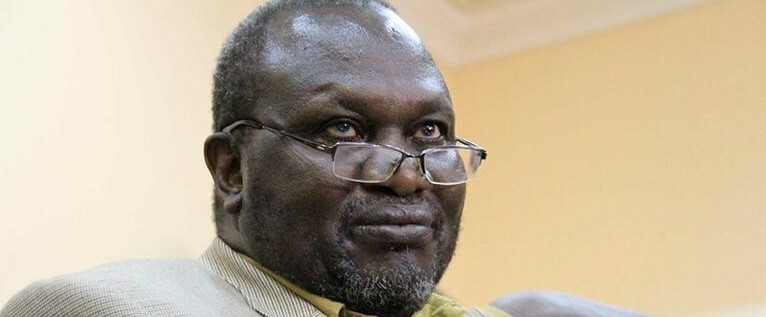South Sudan’s government has indicated that detained First Vice President Riek Machar could be replaced, pending the outcome of an investigation into his alleged involvement in recent violence.
Earlier this month, a faction of officials from Machar’s SPLM-IO party declared Stephen Par Kuol as interim chairman following Machar’s arrest in March. The First Vice President and SPLM-IO leader was detained by President Salva Kiir over accusations of orchestrating attacks on the South Sudan People’s Defence Forces (SSPDF) in Nasir by the White Army, a Nuer youth militia.
Par, a minister for peacebuilding, was suspended from the SPLM-IO by acting chairman Oyet Nathaniel shortly before his nomination as interim leader.
The move to replace Machar—who remains under house arrest—has been fiercely contested by the armed wing of the SPLM-IO, which remains loyal to him. Several senior party members also boycotted the meeting in protest.
If removed, this would mark the second time Machar has been ousted as First Vice President. In July 2016, he was replaced by then-mining minister Taban Deng Gai—now a vice president—after deadly clashes in Juba.
Kiir, Machar, and other leaders signed a 2018 peace deal to end a brutal civil war, but implementation has stalled over key issues, including security reforms, election preparations, and drafting a permanent constitution.
Speaking to reporters at a press conference in Juba on Saturday, Information Minister Michael Makuei said Machar’s position could be vacated if investigators find sufficient evidence against him.
“As for his position, of course, it will be vacated when necessary. If the investigation committee finds a case against Riek Machar, they will recommend prosecution,” Makuei said.
A member of Kiir’s SPLM party, Makuei added that if the probe warrants trial, the committee would advise the president to dismiss Machar.

He did not disclose the investigation committee’s composition or timeline but stressed that Machar must first be formally removed before facing prosecution over the Nasir violence, which he said killed hundreds.
“He cannot be tried while still First Vice President. He must be relieved of his position to face the law. If the investigation finds no case, he will be discharged,” Makuei said.
Makuei insisted Machar’s detention does not derail the 2018 peace agreement or general elections slated for December 2024.
“Riek Machar is a leader, yes. But his conflict with the law is separate. His arrest does not mean the SPLM-IO has collapsed. The party continues, and the faction in government remains committed to the agreement,” he said.
He noted the SPLM-IO has splintered into four factions, with only one still backing the peace deal.
Meanwhile, Cabinet Affairs Minister Martin Elia Lomuro outlined plans to advance the peace agreement without Machar’s faction, including recognizing a new SPLM-IO group in Juba, replacing his allies in key commissions, and accelerating election preparations.
Civil society groups warned that Machar’s removal could breach the 2018 accord and reignite conflict.
Ter Mayang of the Center for Peace and Advocacy cited Article 1.7.2, which stipulates Machar remains First Vice President during the transitional period.
“The government’s statement is concerning. Article 1.7.2 clearly states Machar shall be First Vice President until the transitional period ends,” Mayang said.
He warned that unilaterally replacing Machar risks repeating the 2016 crisis, when Taban Deng Gai’s appointment triggered renewed fighting.
“This move may not be accepted by SPLA-IO generals still in the bush. The government must handle this carefully to avoid another war.”




